Today’s BMWs are so dependable and durable that they need fewer repairs than they did in the past. That means performing scheduled maintenance has become a key profit opportunity for savvy shop owners, and something that will keep customers coming back. Here, we’ll talk about the obvious and the not-so-obvious.
All motor vehicles, including BMWs, require periodic maintenance in order to keep them in top operating condition, to protect their factory warranty where appropriate, to maximize fuel economy and overall performance, and to keep up their value, which are all important factors for car owners. You already know that, but you may not be aware of all the profitable maintenance work you could be doing that’ll save your customers from expensive repair bills and make a steady income for your shop. Also, providing such maintenance can be a door-opener for other service operations that can make your customers’ visits an even better deal for both shop owner and car owner.
What about the warranty?
Often, the first question raised by technicians and owners of independent repair shops relates to vehicles’ new-car warranties, which might seem to require that any work be done only in the service departments of authorized BMW dealerships. But the fact of the matter is, warranty support work can be performed in your facility, and if performed properly and thoroughly and dutifully documented, can protect the motorist’s factory warranty.
New BMWs typically carry a four-year, 50,000-mile warranty. Certified pre-owned BMWs are covered by an additional warranty that can extend the original by as much as two years or an additional 50,000 miles, whichever comes first. So you might think that you won’t see these cars until the factory warranty expires. But that’s not necessarily the case.
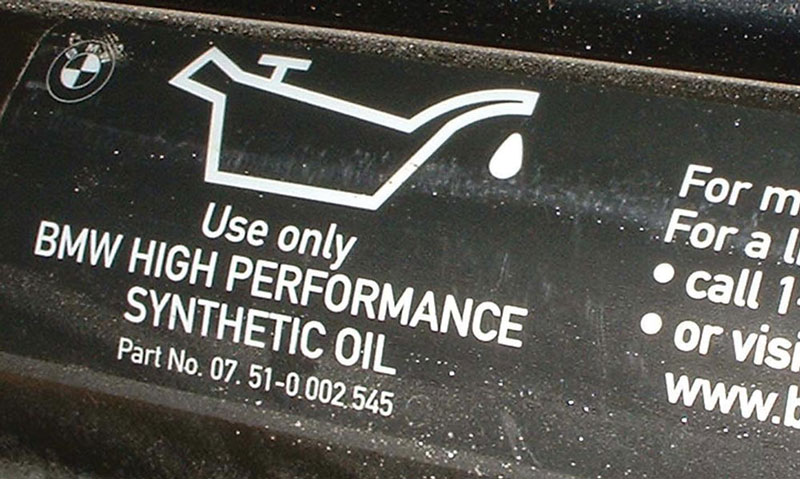
For many years, BMW has specified the use of synthetic motor oil. Buying it from your local dealer’s parts department is convenient and provides peace of mind.
As we said, scheduled maintenance and warranty support work can be performed by independent repair shops. It’s important that you make the effort to provide the customer with a detailed receipt documenting all the various steps that have been taken so that the customer will be able to demonstrate to his BMW dealership that these services have been performed in the event that warranty repairs are needed. Of course, parts and service covered by the factory warranty must be performed by an authorized dealership.
Furthermore, you can advise your customers that the factory new-car and extended warranties can cover certain parts and services for much shorter periods of time. For instance, the BMW new-car warranty only covers wheel alignment, wheel balancing, and windshield wiper blades for the first 2,000 miles, making these services viable targets for your merchandising efforts.

These injectors have just been cleaned. Note the even spray and atomization that make for good performance and emissions control. Injector and intake tract cleaning are great services that will make customers happy with you.
Why would a customer come to your shop for scheduled maintenance?
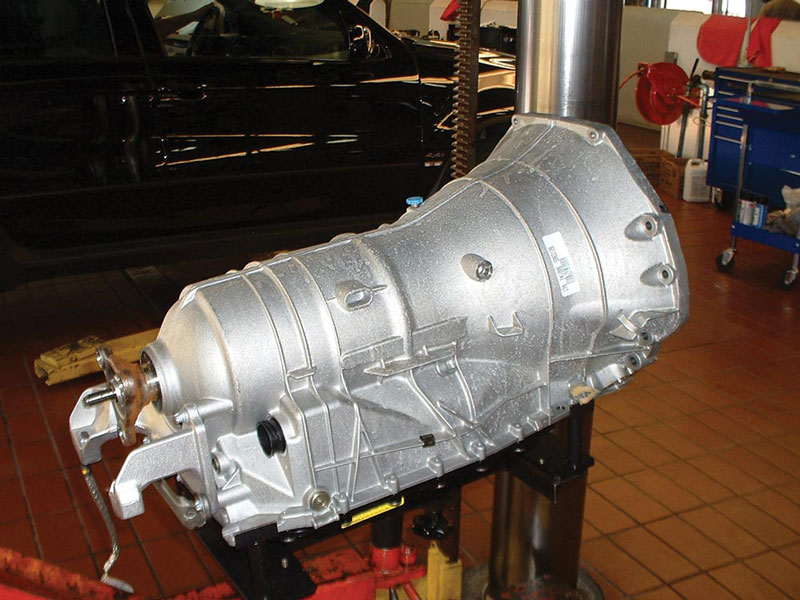
Although BMW offers a great reman transmission program, a replacement transmission is still such a large expense that trans failure is a common reason for scrapping an otherwise serviceable vehicle.
BMWs enjoy an extraordinarily high loyalty factor. Most often, when folks are ready to replace their BMWs, they will do so with another BMW product because they are so pleased with the performance, reliability, and status that come with BMW ownership. You’re already servicing their BMWs, so when you learn that customers are looking to replace theirs, you should make a special point of informing them that you will be happy to perform warranty support work on their new acquisition.
At the same time, if your customer is selling an existing BMW privately, or perhaps passing it on to another family member, you should be able to continue servicing the older car, while adding your customer’s new BMW to your customer base. And, since BMW owners may well travel in social circles that include other BMW owners, word-of-mouth can be your best friend in making it known that you can perform scheduled maintenance and warranty support work.
Of course, BMWs require periodic maintenance even after they’re out of their factory warranty period, and you should promote your performance of such maintenance to help your customers protect the investment they have in their cars.
When and how will the customer know?
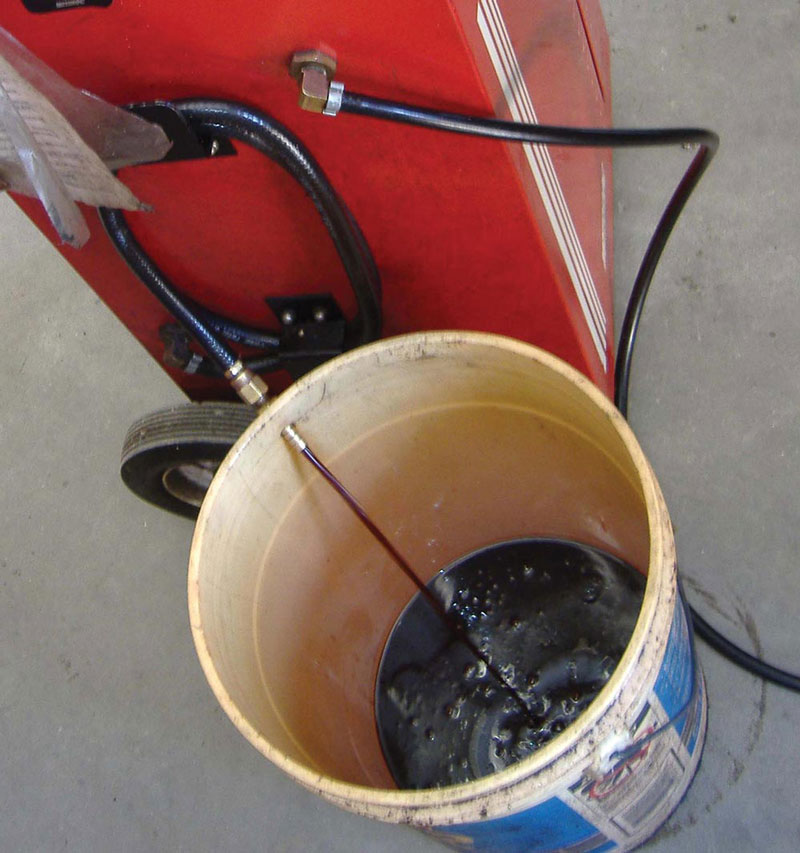
An ATF flush and change is a true benefit for the customer. Look at that fluid after only 30K miles! It’s a pretty easy sale.
In an ideal world, motorists would read and digest their owners’ manuals and heed every instruction and recommendation. But we don’t live in an ideal world, and, unfortunately, most motorists only refer to their owners’ manuals when some sort of problem crops up. That’s one of the reasons that automakers have devised service reminder systems that monitor vehicles and provide a visual signal that service attention is needed.
The most obvious indication that a BMW is due for maintenance is made visually apparent by the Condition Based Service (CBS) system. This “intelligent” vehicle analysis system monitors a variety of parameters and uses algorithms to determine the optimum intervals for various service operations, and alerts the driver accordingly. Among other factors, the CBS system monitors:
- Miles driven
- High or low vehicle speeds
- High or low engine speeds
- Short or long trips
- Condition and level of engine oil
- Condition and remaining life of brake pads
When the CBS system determines that work is needed, it provides an alert on the vehicle’s Service Interval Display. This catches the driver’s attention and informs him or her that it’s time to take the vehicle to a shop. The CBS system can also show due dates or distance remaining for tasks like changing engine oil and replacing disc brake pads.
Another opportunity for you to sell scheduled maintenance to your BMW customers is when vehicles are brought in for state-mandated inspection. Many states require annual safety inspection and perhaps emission inspection as well, and in most cases these inspections can be performed by state-certified independent repair shops. If yours is one of those, you get an opportunity to check the vehicle’s lights, brakes, and other vital safety systems, but you also have the chance to sell the owner a comprehensive maintenance package as spelled out in their maintenance booklet.
So exactly what maintenance is scheduled?
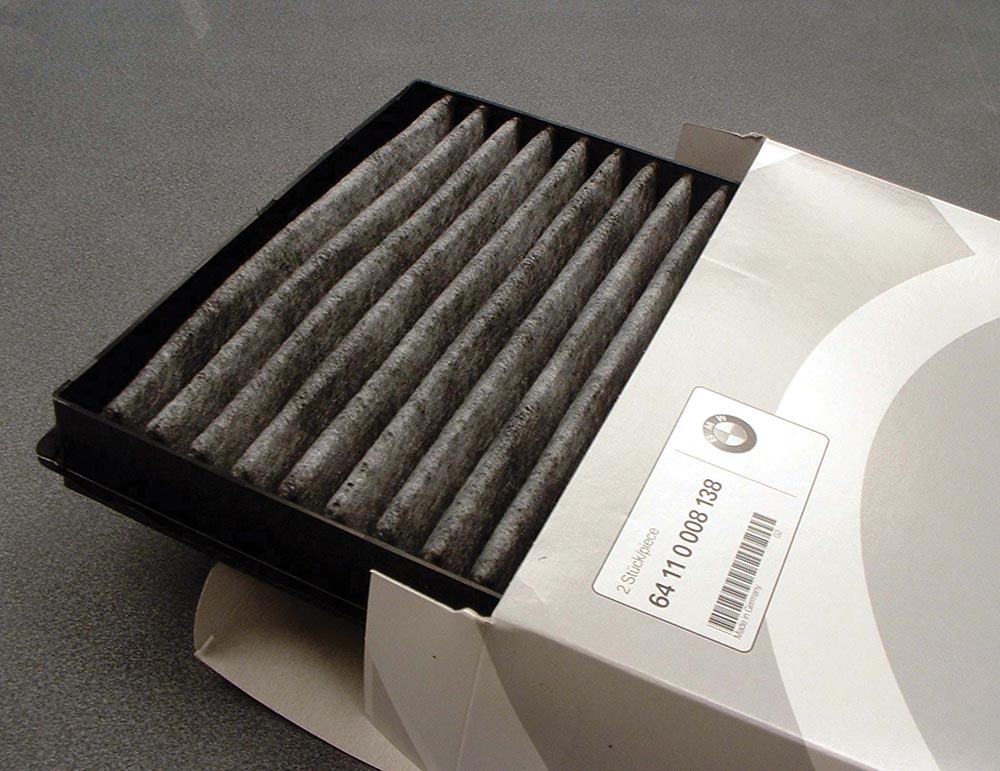
The interval for cabin air filter replacement varies according to the conditions the car lives in, so do frequent visual inspections.
There is a long list of tasks spelled out in BMW service booklets. As you’ll see in the accompanying pages from just such a book, the list is lengthy and detailed. It encompasses virtually all of the vehicle’s key systems — ignition, fuel, emissions, and other engine management systems and components, plus brakes, lighting, tires, battery, steering and suspension, and more.
Intervals for parts replacement vary with the expected life of the component or system, which makes detailed record-keeping all the more important. Here are some noteworthy examples:
- Change engine oil and filter at every service interval as directed by the CBS.
- Change spark plugs at either 45,000 miles or 100,000 miles, depending on the model.
- Change the brake fluid every two years.
- Change the engine air filter every third oil change or as directed by the CBS.
- Change the automatic transmission fluid every 100,000 miles.
- Change the oxygen sensor(s) every 120,000 or 150,000 miles, depending on the model.
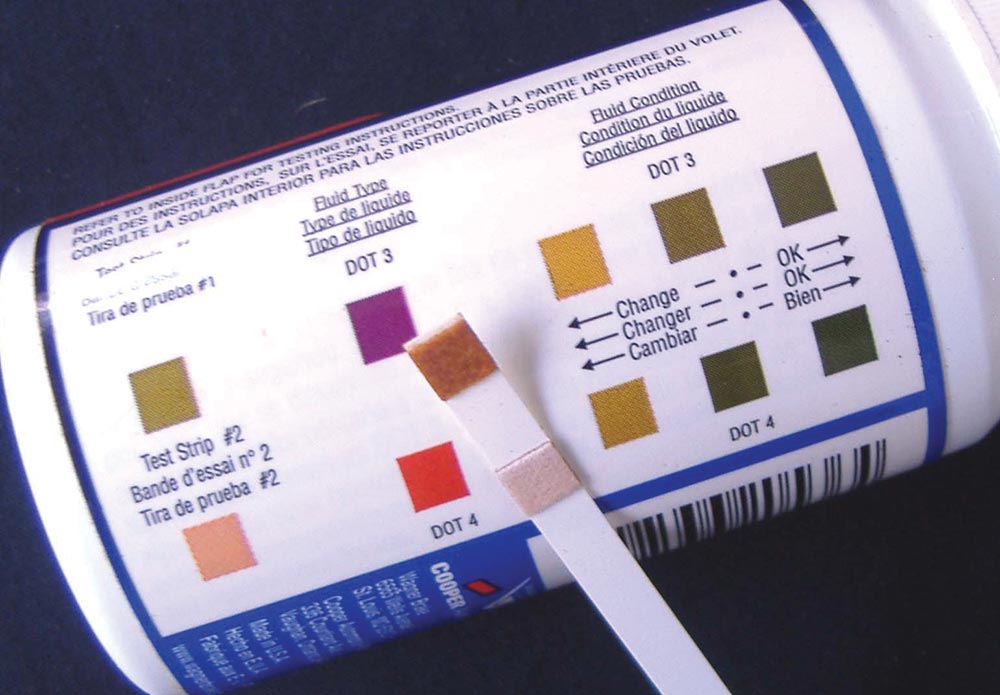
A visual indication of the need for brake fluid changes can be provided by test strips, which can be stapled to repair orders. A flush and change every two years is recommended.
Other recommended services are on an as-needed basis, such as brake pad replacement. And note that still other services, such as replacement of the cabin air filter, which BMW refers to as the ventilation microfilter, is not a parameter monitored by the CBS. So you’ll need to perform a visual inspection and replace as necessary.
Over the years, we tech editors at the bimmer pub have identified yet more important maintenance services that may or may not be mentioned in BMW owners’ manuals, and are both beneficial to your customers and profitable from the perspective of independent shop owners:
- Fuel filters are sometimes overlooked, but failing to replace them at reasonable intervals can result in an expensive repair — clogged filters make the pump work much harder, resulting in a shorter life. Tip: Save the old one so you can show the customer how hard it is to blow through.
- Intake tract cleaning can make a BMW run like new again, eliminating stumble and rough idle among other things. It not only removes carbon and other deposits from the injectors, it also blasts deposits from the combustion chambers and the backs of the valves.
- Belt and hose failures leave motorists stranded, perhaps in dangerous locales, more often than just about anything else. Serpentine belts should be carefully examined for cracking, chunking, and shredding, and hoses should be checked for softening and bulging (replacement every four years is commonly recommended). Overlook this at the peril of your reputation and the risk of liability.
- Even though all modern BMWs come from the factory with long-life antifreeze, that doesn’t mean forever. Except for oil changes, nothing is more important for engine longevity than a well-maintained cooling system. So don’t be shy about recommending coolant service using a combination of BMW-spec antifreeze and pure water.
- Tires need care, too. Rotation is recommended, of course, but so is rebalancing if your road test reveals that the ride isn’t smooth. This is a customer pleaser.
-
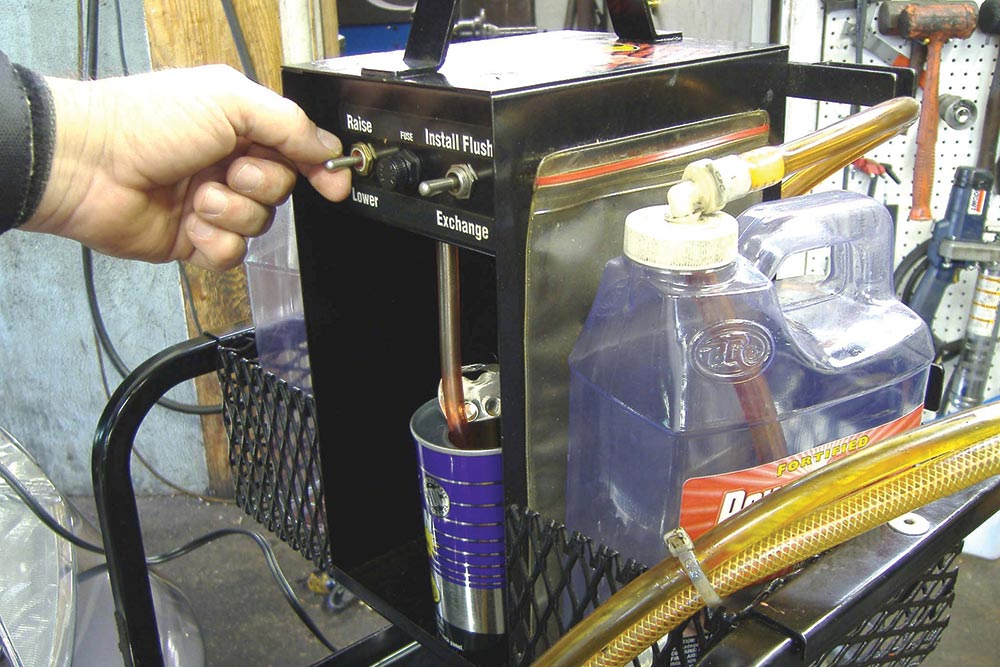
Although you can do a power steering fluid flush/refill without one, a relatively inexpensive purpose-built flushing machine will make the procedure faster, neater, and more complete. Use the right stuff!
Speaking of rolling rubber, make sure you’re vigilant about the tires on your customers’ cars. Replacement can be considered regular maintenance, and you only want to use tires that come up to BMW O.E. quality and performance standards. Chances are your local BMW dealer’s parts department carries the best tires available at a reasonable price considering the value offered.
- A power steering fluid flush and refill can save your customers from expensive rack and pinion wear and leaks. Just make sure you use the highest-quality PS fluid available, such as that offered by your BMW dealer.
- Is that battery four years old? If so, it’s likely that it hasn’t got much life left. Capacity testing is certainly a justifiable maintenance procedure that may head off an inconvenient, and even perilous, breakdown. Going with O.E. here will assure long, dependable service.
- Manual transmission and rear axle/differential fluid gets dirty and breaks down eventually. Draining and replacing it with the synthetic gear lube your BMW dealer sells is often-overlooked maintenance that will keep those gears and bearings in shape for the life of the car, all the while assuring smooth, quiet operation.
Looking over this extensive list of recommended checks, inspections, services, and replacements, it’s easy to see that a conscientious effort to perform and document all these various steps, including the recommended road test, can easily take two hours of a technician’s time, give or take. That’s time that should certainly be billed out at full labor rate, since most of these tasks require a skilled and knowledgeable technician to perform them. Note, too, that seemingly simple tasks can be inordinately time-consuming. For instance, simply accessing the battery on new-generation M5 models can easily take the better part of an hour, time that should properly be billed out to the customer if such access is necessary.
But wait! There’s more!
Nowhere is it written that you must wait for the CBS or some other indicator in order to perform preventive maintenance. Many BMW owners prefer to protect their investment with more frequent maintenance than may be indicated by the CBS. Certainly you should oblige those who request such service.
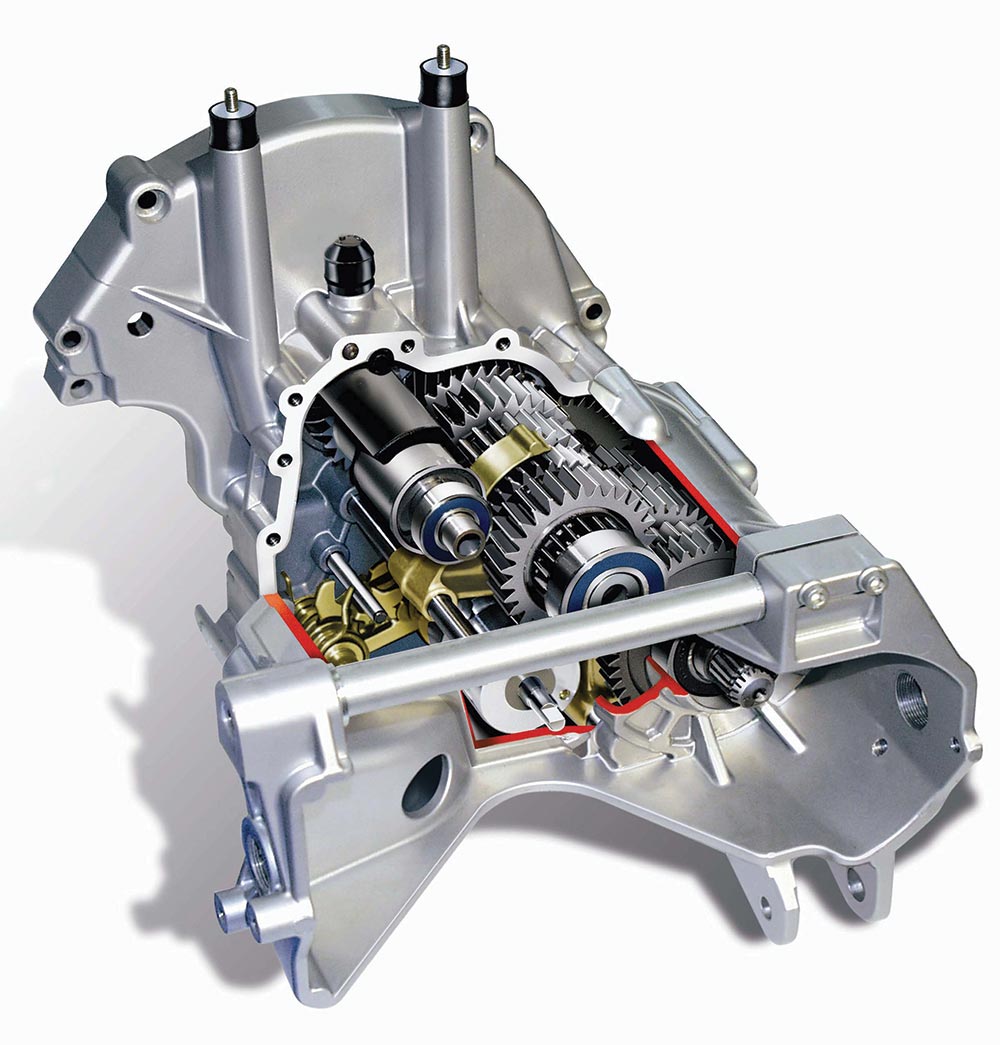
Manual transmission and rear axle/differential fluid changes assure smooth operation and “forever” longevity.
Further, consider that the service triggered by the CBS could be considered the minimum required to protect the owner’s new-car warranty. Many savvy independent BMW technicians are aware that new-generation BMWs are fitted with low-tension oil control rings on the pistons. As such, blow-by is not uncommon in higher-mileage cars, as evidenced by ruptures in the self-regulating PCV valve caused by a build-up of sludge. These ruptures can result in a moaning sound that leads many to refer to this as the “honker” valve, and makes a strong case for more frequent oil changes to forestall buildup of such sludge in the first place.
Note also that performing a thorough inspection entailing all of these steps and systems may well uncover the need for the replacement of certain parts. Inasmuch as BMWs are especially well-built, and given the fact that replacement intervals for many of these parts are quite long, it makes good business sense to obtain replacement parts from your local BMW dealer. This will assure that the parts you install will last as long and perform as well as the parts being replaced, and will afford your customer the best possible value for what is likely their second-largest investment, next to their home.
Finally, when your inspection and service are complete and you’ve de-briefed your customer on your findings, be certain to provide them with a detailed written report of your work. You can even photocopy the service/maintenance pages from their owner’s manual and physically check off each item as you perform the specified task. This check list, combined with a detailed repair order, will provide your customer with the documentation needed if repairs are ever needed under the terms of his or her factory warranty.


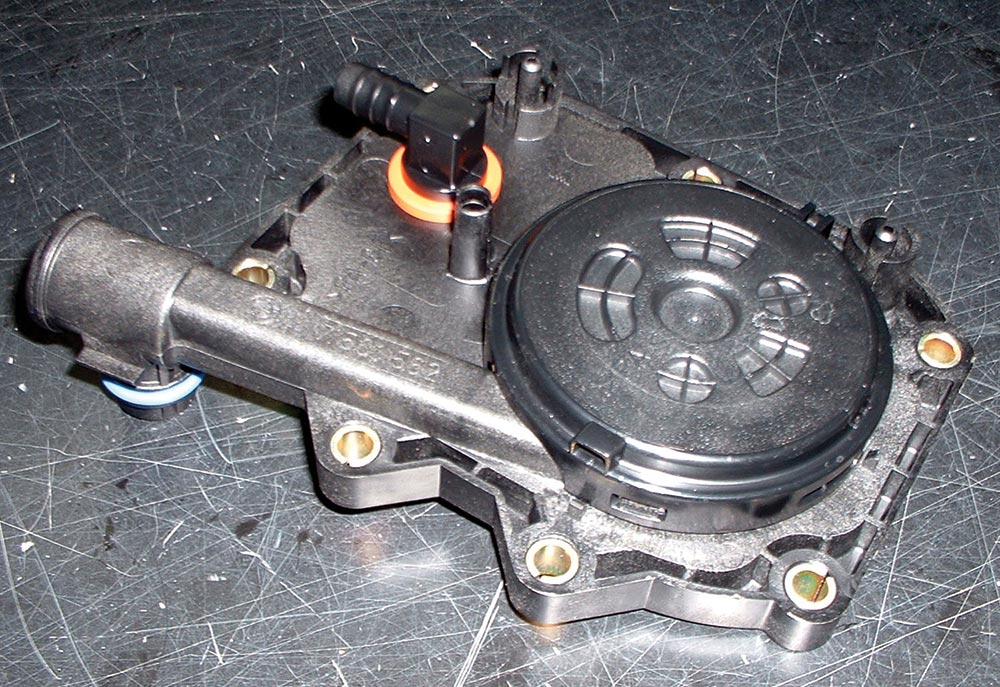
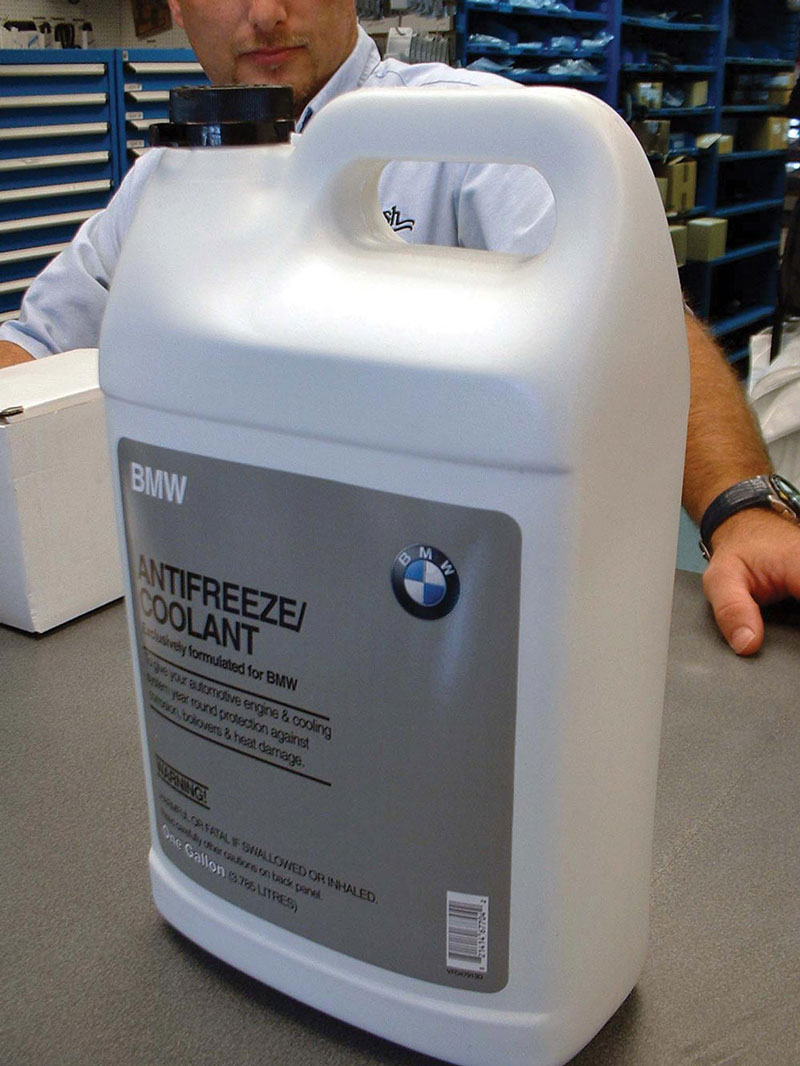
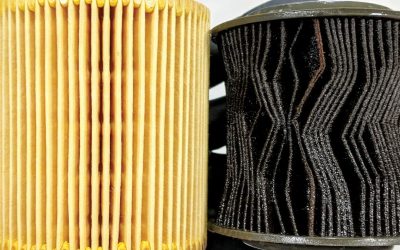

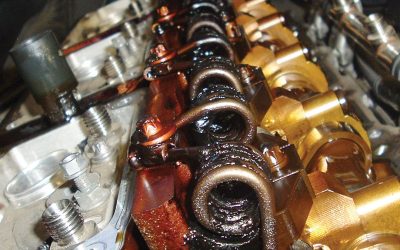
0 Comments